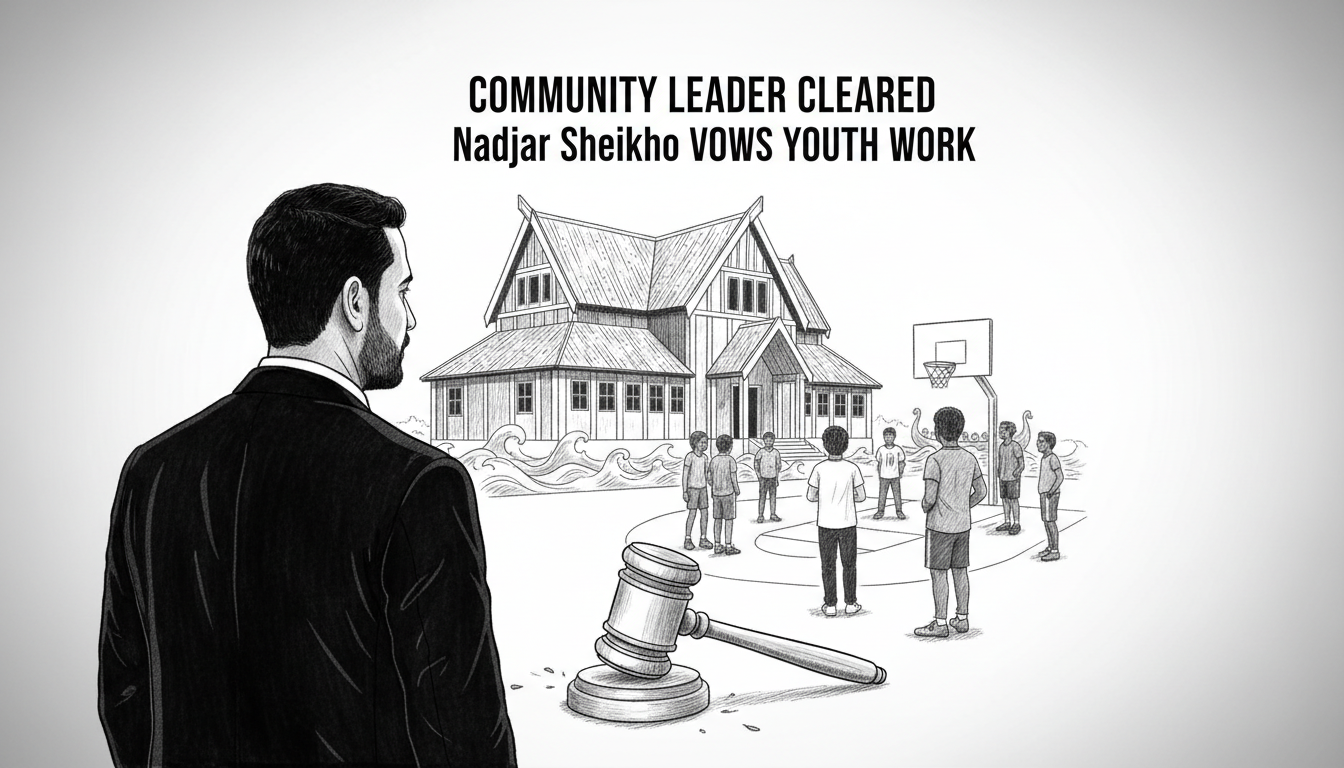Nadjar Sheikho walks free from Sweden's largest narcotics investigation with a renewed mission. The Court of Appeal cleared him and eight others of involvement in attempting to smuggle 1.3 tons of cocaine through Norvik port in Nynäshamn. This stunning reversal comes after nine months in custody and a lower court conviction.
Sheikho's controversial youth center in Köping had already closed when authorities arrested him. He created the space while serving a previous prison sentence, designing it specifically to steer young people away from crime. Local police and municipal officials remained skeptical about his methods from the beginning.
The appeal court determined that while Sheikho had phone contact with a convicted drug offender, prosecutors failed to prove these conversations involved criminal activity. The court found reasonable doubt about any connection to the massive cocaine smuggling operation.
"It feels fantastic to be cleared on all counts," Sheikho said in a statement. "I had nothing to do with that matter." His voice carried the relief of someone reclaiming his reputation and future.
Two other men received severe sentences in the case—one got seven years imprisonment while another received life. The contrasting outcomes highlight the complexity of major drug investigations and the importance of evidentiary standards.
Sweden's approach to crime prevention and rehabilitation faces ongoing scrutiny as cases like this unfold. The country balances strict drug laws with efforts to reintegrate former offenders. Sheikho's experience reveals both the possibilities and pitfalls within this system.
Despite the legal ordeal, Sheikho remains committed to his original vision. "I want to share what I've been through and guide youth in the right direction," he explained. "There's nothing to gain from criminal life. Millions of opportunities exist if you stay on the right path."
His determination reflects a broader conversation in Swedish society about second chances and community-based solutions. As Stockholm neighborhoods and other Swedish cities grapple with youth crime, figures like Sheikho represent both hope and controversy.
The case raises important questions about presumption of innocence and how society treats people with criminal records. Can former offenders truly leave their past behind? Sheikho insists he has "left that life behind me" and wants to focus entirely on helping the next generation avoid his mistakes.
This legal drama touches core aspects of Swedish culture and social policy. The country's famous balance between strict law enforcement and progressive rehabilitation ideals gets tested in such high-profile cases. For international observers, it offers a window into how Nordic societies handle complex social challenges.
What happens next for Sheikho and his youth work remains uncertain. But his case already demonstrates how Swedish courts carefully weigh evidence, even in massive drug investigations. The justice system's willingness to reverse convictions shows its commitment to getting decisions right, regardless of public pressure or case size.

